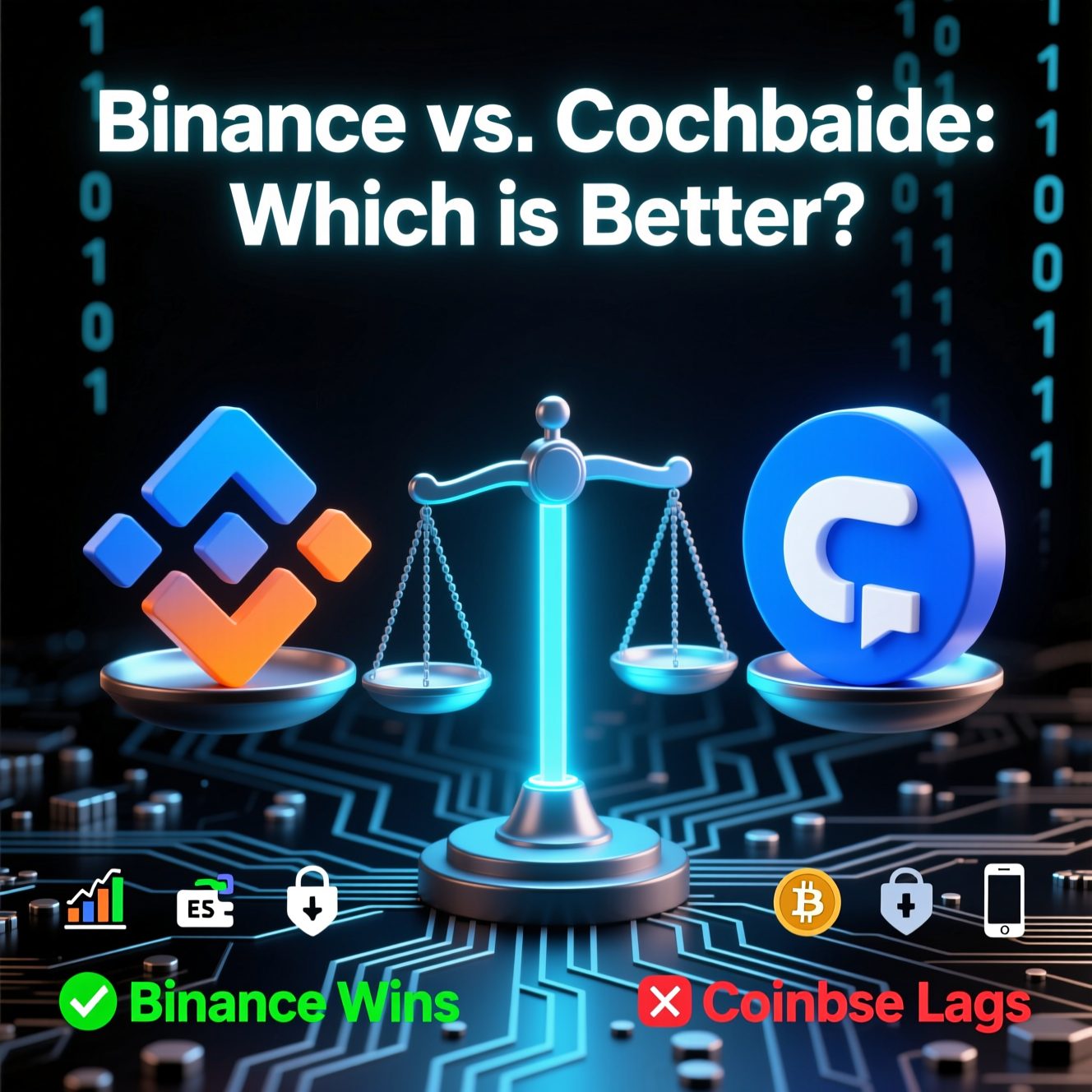Cryptocurrency trading has become mainstream, with millions of users looking for reliable platforms to buy, sell, and trade digital assets. Two of the most popular exchanges are Binance and Coinbase. Both have large user bases, robust features, and global reach. But which one is the better choice? This article provides an in-depth comparison to help you decide.
Overview of Binance
Binance, founded in 2017 by Changpeng Zhao (CZ), is a global cryptocurrency exchange that supports hundreds of cryptocurrencies. It offers advanced trading options, staking, futures trading, DeFi integration, and a strong ecosystem including Binance Smart Chain (BSC).
Overview of Coinbase
Coinbase, founded in 2012 in the United States, is known for its simplicity and regulatory compliance. It is often recommended for beginners due to its intuitive interface and strong security features. Coinbase supports major cryptocurrencies like Bitcoin (BTC), Ethereum (ETH), and a select number of altcoins.
Key Comparison Points
1. User Interface and Experience
- Binance: Offers a complex interface with advanced trading tools suitable for experienced traders. Includes charts, indicators, margin trading, futures, and options. Binance also offers a simplified version, Binance Lite, for beginners.
- Coinbase: Known for simplicity and ease of use. Ideal for beginners with a clean interface and straightforward buy/sell options. Advanced trading requires Coinbase Pro.
2. Supported Cryptocurrencies
- Binance: Supports hundreds of cryptocurrencies and trading pairs, including emerging altcoins. This makes it ideal for users looking to diversify.
- Coinbase: Supports fewer coins, focusing on popular cryptocurrencies. Better suited for users seeking mainstream crypto exposure.
3. Fees and Pricing
- Binance: Offers competitive trading fees starting at 0.1%, with discounts for using Binance Coin (BNB) to pay fees. Futures and margin trading also have separate fee structures.
- Coinbase: Higher fees, ranging from 0.5% to 4% depending on payment method and transaction size. Coinbase Pro offers lower fees for active traders.
4. Security
- Binance: Implements strong security measures, including two-factor authentication (2FA), cold storage, withdrawal whitelist, and the Secure Asset Fund for Users (SAFU).
- Coinbase: Highly regulated and insured. Offers 2FA, cold storage, insurance coverage for digital assets, and a strong compliance framework.
5. Advanced Features
- Binance: Futures trading, margin trading, staking, savings programs, NFT marketplace, and Binance Smart Chain ecosystem.
- Coinbase: Coinbase Earn (learn and earn), staking for select coins, NFT marketplace (US only), and limited advanced trading tools via Coinbase Pro.
6. Global Accessibility
- Binance: Available in most countries, though some regions have restrictions due to regulatory issues. Offers multiple languages and local payment options.
- Coinbase: Primarily focused on the US, Europe, and selected countries. Fully compliant with regulations in supported regions.
7. Educational Resources
- Binance: Binance Academy offers extensive guides, tutorials, and market analysis.
- Coinbase: Provides educational content and Coinbase Earn programs to learn while earning crypto.
Pros and Cons
Binance
Pros:
- Low fees and discounts with BNB
- Wide range of cryptocurrencies and trading options
- Advanced tools for experienced traders
- Staking, futures, and DeFi integration
Cons:
- Complex interface for beginners
- Regulatory challenges in some countries
Coinbase
Pros:
- Beginner-friendly interface
- Strong regulatory compliance
- High security and insured funds
- Simple mobile app for trading
Cons:
- Higher fees than Binance
- Limited cryptocurrency selection
- Advanced trading requires Coinbase Pro
Which One Should You Choose?
- Beginners/New Investors: Coinbase is better suited due to simplicity, regulatory compliance, and ease of use.
- Experienced Traders: Binance is ideal for its wide range of coins, low fees, advanced trading tools, and additional products like futures and staking.
- Global Users: Binance offers more accessibility worldwide but requires careful attention to local regulations.
Conclusion
Both Binance and Coinbase have unique strengths. Binance excels in advanced trading, low fees, and a wide range of crypto options, making it perfect for active traders. Coinbase is beginner-friendly, highly regulated, and secure, suitable for users just starting in cryptocurrency.
Ultimately, the best exchange depends on your trading experience, goals, and risk tolerance. For many investors, using both platforms can provide a balance—Coinbase for secure, beginner-friendly transactions, and Binance for advanced trading opportunities and a broader crypto portfolio.


